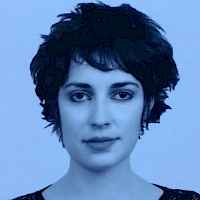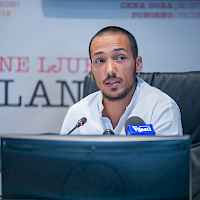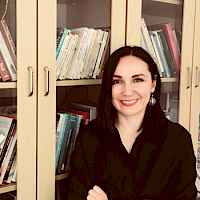Can we fight together? Contentions of feminist and LGBTIQ activism in Southeast Europe
- Dr. Čarna Brković (Chair)
- Dr. Bojan Bilić
- Jovan Džoli Ulićević
- Dr. Diana Manesi
- Dr. Linda Gusia
- Prof. Dr. Nita Luci
This panel explores debates, struggles, and contentions that have shaped feminist and LGBT activism in Southeast Europe (SEE). If the ‘history of feminism … ought to be understood as a history of contentions’ (Zaharijevic Adriana), so does the history of feminist and LGBT activism.
The most recent discussions among activists in SEE are led around two axes. First, heated debates are led around the question of whether it is possible to articulate a joint struggle that would include both what Nancy Fraser (2002) calls the issues of redistribution (class, economic and redistributive justice) and recognition (cultural visibility, human rights, and social acceptance of various minorities). In these debates, there are feminist and leftist actors who take transphobic and conservative standpoints, as Bilic and Ulicevic demonstrate in their papers. Other actors approach the question of how to articulate a joint struggle across differences from a queer and transformative perspective, turning grief as a shared affect into a political claim (Manesi).
Second, disputes are provoked by the internal claims to progress, civilization, or Europeanness, which are often based on ‘nesting orientalisms … a tendency of each region [in SEE] to view the cultures and religions to its South and East as more conservative and primitive’ (Bakic Hayden). As Gusia and Luci demonstrate, the case in point are the orientalising attitudes of (post)Yugoslav feminists towards those from Kosovo, whose economic deprivation and suffering under systemic political violence remains largely invisible and undertheorized.
The panel participants provide detailed ethnographic and historical accounts of the contentions, debates, and struggles organized around the two axes. Together with the audience, we will also think about the conditions under which it is possible to articulate joint struggles across racial, class, ethno-national and other vectors of distinction.
-

Dr. Diana Manesi
Centre for the Research on Women’s Issues “Diotima”
“We are full (St)orgi! (tender rage)”/“Violence isn’t my thing!”
The politics of agonist mourning in the aftermath of Zak/Zackie’s death
On September 2018, the LGBTQI+ community is struck by the brutal murder of the queer activist and drag queen Zak Kostopoulos/ Zackie Oh. Zak Kostopoulos, who was committed to raising awareness about HIV through the organization Positive Voice, was beaten to death by a mob of male onlookers and policemen, in broad daylight, on a busy pedestrian street near Omonia square, in central Athens. This horrific murder elicited outrage and various protests, LGBTQI+ rallies, fundraising campaigns for the juridical expenses, social events and gatherings (Queer Ink and AMOQA). A series of public talks were organised, entitled Queer memory and politics, where academics, activists and artists participated with the aim to make space for preserving Zak’s memory and demand accountability and justice. In addition, a petition with the title “the responsibility of our grief” was endorsed by more than 250 academics from universities in and outside Greece. In this context, grief as a performative practice of collective protest and vulnerability as a differentiated effect of power that is not disavowed bring to the fore an ethics of non-violence, a non-sovereign agonistic subject and a tender/feminised mode of doing politics. In this paper, I will reflect on the forms of political agency that emerged in relation to grief, rage and pain but also on the claims to social justice and political freedom that were made when activists, researchers and artists came together to share their grief over Zak’s murder and affirm his life and practices of freedom.
Diana Manesi has studied Communication and Media studies, and International and European relations at the University of Athens and Cultural studies and Communication at Panteio University of Social and Political Science. She has also studied Social and Cultural Anthropology at UCL, University of London. She has conducted her PhD in social anthropology at Goldsmiths College, University of London. She has taught at the Anthropology department of Goldsmiths College. Her research interests include gender, feminist and queer theory, queer anthropology, biopolitics, migration and refugee studies, affect, nationalism, and memory. She is currently working at the Centre for the Research on Women’s Issues “Diotima” in Athens, where she explores the gendered aspects of refugee and migration experiences.
-

Dr. Bojan Bilić
University of Lisbon, Portugal
(Post-)Socialist Gender Troubles: Transphobia in Serbian Leftist Activis
Over the last few years, the highly charged debates about the role that trans women should play in leftist and feminist struggles have spilt over from the Anglo-American space into the polarized and fragmented field of Serbian activist politics. In the context of rapid impoverishment, omnipresent corruption, and constant erosion of the working class, trans women – one of the most marginalized social groups – have been constructed as an “arch-enemy” provoking painful tensions and draining activist energies. In this paper I draw upon semi-structured interviews with trans and feminist activists to explore why it is that some strands of Serbian leftist activism – which has had a hard time recovering from the 1990s’ nationalist blow – mark gender difference in such a rigid way that “what is socially peripheral” becomes symbolically central (Hall, 1997) to the point of exclusion, discrimination, and verbal violence. While I focus empirically on the polemics surrounding the activist collective Marks21, whose most visible male members have been particularly vocal about the risks that trans (women’s) emancipation allegedly poses for the precarious achievements of the leftist and feminist movements, I juxtapose it with Praxis, an older Yugoslav Marxist initiative that can hardly boast about its feminist record. Within such an analytical frame, I argue that the capacity of the ‘trans question’ to split the already minuscule left side of the political spectrum is reflective of the long-term conservative and neocolonial dimensions of the Yugoslav/Serbian Left.
Bojan Bilić is a psychologist and political sociologist doing research on LGBTQ activisms and anthropology of non-heterosexuality and gender variance in the post-Yugoslav space. He is FCT Fellow at the Institute of Social Sciences, University of Lisbon, and Adjunct Professor of Gender and Social Movements in South East Europe at the School of Political Sciences, University of Bologna (Forli' Campus).
-

Jovan Džoli Ulićević
NGO Spektra, Montenegro
Trans activism, left and feminism – (non)solidarity and intersection between gender, sex and class. (Non)Possibilities of intersectional trans activism in Montenegro
Trans activism and movement for liberation of transgender persons in post-Yugoslav space, are empowered significantly, followed by raising visibility of trans persons, as well as public discourse about human rights of LGBTI persons, which is rutted both in activism of self-organized groups, as well as from narratives of public policies aiming to promote human rights of LGBTI persons, led by Europeanisation and process of EU integrations.
Terminology used within the trans movement often taken from western trans activism, insisting on the right to self-determination regarding gender identity, as well as on deconstruction of gender and sex as social constructs, encountered strong criticism by some leftist groups and individuals, as well as some members of feminist movements across the region. Critical arguments mostly include emphasizing biological determinism, differences between men and women, both in biological sense, as well as in regards to socialization, often connecting demands for self-determination requested by trans movements and neoliberal identity politics.
This criticism does not seem to persist in all countries of post-Yugoslav space. In some countries intensifying the discussion about validity of trans identities and trans activism has been evident (ex. Serbia, rarely in Croatia), while in some countries examples of solidarity between feminist and trans movements are emerging, especially in claiming Women’s Marches as a mutual space (ex. Montenegro, North Macedonia), while in some cooperation between feminist, student and workers movements have strong history in supporting trans movement (ex. Croatia).
This paper has a goal to examine specific nature of trans movement in Montenegro, as well as possibilities and challenges in the development of intersectional trans activism in Montenegro, while merging it with feminist and other movements dealing with social questions, including the question of class.
Jovan Ulićević has been actively involved in the protection and promotion of human rights of LGBTIQ persons and gender equality since 2013 and is one of the leading activists in this field in the Western Balkans. He is one of the founders of the LGBTIQ association Queer Montenegro. He is a member of the initial organizing committee of the national Pride March of LGBTIQ persons Montenegro Pride. Together with a group of activists from the countries of the former Yugoslavia, in 2014 he was one of the founders of the regional organization Trans Network Balkan, which deals with the protection of the human rights of trans, gender and intersex persons (TIRV) in the Western Balkans: Croatia, Montenegro, Bosnia and Herzegovina, Serbia, Slovenia, Kosovo, Albania and Northern Macedonia. Since 2017, he has been the executive director of the Association "Spectra", the only trans organization in Montenegro. He is the co-chair of the Board of the umbrella European organization Transgender Europe. He is a member of the National Team for Coordination of the Implementation of the Strategy for Improving the Quality of Life of LGBTI Persons for the Period 2019-2023, the Trust Team of the Police Administration and the LGBTI Community, as well as the Working Group for Drafting the National Strategic Document for Gender Equality for the period 2021-2025. He is the author of several important publications dealing with gender equality, including publications for medical and social workers, research on discrimination against LGBT people in prison systems, research on discrimination against transgender people in secondary schools, as well as shadow reports on the implementation of CEDAW recommendations. and the implementation of the Recommendations of the Committee of Ministers on measures to combat discrimination based on sexual orientation and gender identity.
-

Dr. Linda Gusia
University of Pristina, Kosovo
-

Prof. Dr. Nita Luci
University of Pristina, Kosovo
Behind the Veil of Feminism and Nationalism: Contesting solidarities and difference in histories of women’s activism in Kosovo
This article discusses the multiplicity and complexity of women's activism, mobilization, and solidarity in Kosovo. It looks at the social and political context of the break-up of Yugoslavia and the emergence of a women’s movement, in order to make visible and voice the influences and dynamics of women’s emancipation, as a social and political project, on gender equality and feminist activism. Specifically, the analysis maps some of the actors, practices and discourses of women’s mobilization, the shifting solidarities and fractures within Yugoslav socialist feminism and the Kosovar nationalist paradigm. We argue that during socialist modernization, as well as post-socialist reconfigurations identity-based politics masked racialized cultural essentialism and differences in socio-economic realities within former Yugoslavia. Guided by Du Boisian sociology and feminist intersectionality we unpack a largely unaccounted marginality and oppression experienced by Albanian women – as social agents and a political category – with the view of enabling knowledge and recognition of the particularity of a racialized and gendered experience. We claim that lack of recognition of the effects of economic deprivation in Kosovo, as well as systematic political violence, pointed to the shortcomings of mobilization based on categories of ‘women’ and ‘sisterhood’ as central tropes of the transnational second wave, which also characterized Yugoslav feminisms. We argue that the women’s movement and feminist activists in Kosovo where othered through structural and symbolic practices of the socialist and the post-socialist nationalist state building paradigms, but also negotiated the opening of new venues for mobilization, contestations and solidarities.
Linda Gusia is a sociologist and feminist scholar, lecturing at the University of Prishtina. Her research has focused on topics of gender, feminism, activism, space, memory and violence. She is head of the Department of Sociology, co-founded the University Program for Gender Studies and Research, UP. She currently researching and working in: The Making of the Museum of Education: Memory, violence and resistance as seen by artists, youth and institutions, she is also a Co I in of ReSpace Reanimating Contested Spaces (ReSpace): Designing Participatory Civic Education for and with Young People in Kosovo and Rwanda is a Phase 2 Large Grant project that investigates how concepts of space, through arts-based participatory methods, can engage the ‘post-memory’ generation in Rwanda and Kosovo to reimagine specific sites.
Ass. Prof. Nita Luci (PhD Anthropology - University of Michigan, Ann Arbor) is a feminist scholar and activist. She is head of the Department of Anthropology, University of Prishtina, where she also teaches at the departments of Sociology, Philosophy and Contemporary Art. Her scholarship has focused on the intersection of nationalist cultural politics, manhood, violence and political movements. She has received numerous research grants and fellowships and lead teaching and research projects at the UP, where she also co-founded the University Program for Gender Studies and Research. As Co-I on the ACT project (UK AHRC/Global Challenges grant - ‘Changing the Story’ project) she is part of collaborative participatory action research that looks at the ways in which artists, arts-based organizations, initiatives and institutions, engage young people with and through arts on civic education, heritage and social justice. In addition to her academic career, she has been active in gender equality processes in Kosovo through research, activism, CSO development, assessment and design of projects intersecting political, social and legal dimensions of gender relations.
Contributors
-

Chair
Dr. Čarna BrkovićUniversity of Göttingen, Institute for Cultural Anthropology/European Ethnology
-

Dr. Bojan Bilić
University of Lisbon, Portugal
-

Jovan Džoli Ulićević
NGO Spektra, Montenegro
-

Dr. Diana Manesi
Centre for the Research on Women’s Issues “Diotima”
-

Dr. Linda Gusia
University of Pristina, Kosovo
-

Prof. Dr. Nita Luci
University of Pristina, Kosovo
Join
To take part in the conference please register here. After completing the registration, your login data and further information will be sent to you by email.